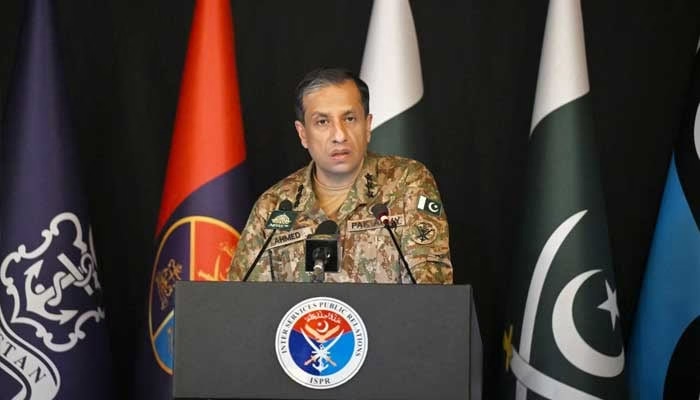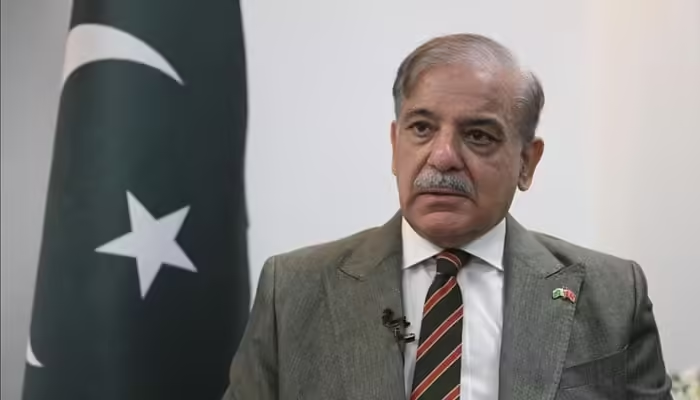Director-General Inter-Services Public Relations (DG ISPR) Lieutenant General Ahmed Sharif Chaudhry firmly denied on Monday the Afghan Taliban’s allegation that Pakistan was allowing US drones to carry out operations in Afghanistan. Speaking during a detailed briefing with senior journalists, Lt Gen Chaudhry stated clearly that this allegation is false, emphasizing that Pakistan has not allowed the United States to use its soil for any attacks on Afghanistan.
The statement came amid heightened regional tensions and cross-border accusations between Islamabad and Kabul. Lt Gen Chaudhry clarified that no agreement exists between Pakistan and the United States that would permit Washington to launch strikes inside Afghanistan. He stressed that Pakistan remains committed to maintaining sovereignty and territorial integrity while seeking peaceful regional cooperation.
Pakistan-Afghanistan Relations and Counterterrorism Efforts
During his briefing, the DG ISPR shed light on the broader context of Pakistan-Afghanistan relations, including talks between the two nations, cross-border attacks, and ongoing counterterrorism operations. He highlighted that Pakistan’s recent operations have been focused on dismantling terrorist financial networks, particularly those linked to cross-border militants operating from Afghan soil.
Lt Gen Chaudhry revealed that in recent security operations, 112 foreign fighters were neutralized, with around 60% identified as Afghan nationals. He further added that 206 Afghan soldiers had been killed in related clashes over the past few months. These operations, he said, were necessary to protect Pakistan’s borders from persistent terrorist infiltration.
Narcotics and Terror Financing in Khyber Pakhtunkhwa
A major portion of Lt Gen Chaudhry’s briefing focused on the role of drug cultivation and smuggling in funding terrorism. He pointed out that the Tirah Valley in Khyber Pakhtunkhwa remains a hotspot for poppy cultivation, which provides financial support to militant groups. The DG ISPR explained that anti-narcotics forces, drones, and the Frontier Corps had destroyed several poppy fields and drug-processing sites as part of ongoing counter-narcotics operations.
He stated that roughly 12,000 acres of land in the province were under poppy cultivation, generating profits ranging between Rs1.8 million and Rs3.2 million per acre. “Local politicians and other influential figures are also involved in this cultivation,” he cautioned, calling for stronger local accountability and governance to curb this illegal practice.
Taliban’s Failure to Honor the Doha Agreement
Addressing the deteriorating ties between Islamabad and Kabul, Lt Gen Chaudhry pointed out that Pakistan’s core issue stems from the Afghan Taliban’s failure to honor the Doha Agreement. The agreement, he explained, included promises such as holding a Loya Jirga (grand assembly) and forming a representative government. However, the Taliban have not fulfilled these commitments.
“We want peace and prefer negotiations, but if talks fail, we will consider other means,” he said, emphasizing Pakistan’s preference for diplomatic solutions while keeping all options open to protect national security. The DG ISPR reiterated that Pakistan continues to support the idea of a stable and inclusive Afghanistan, as instability there directly affects Pakistan’s internal security and border management.
India’s Alleged False Flag Operations
The DG ISPR also addressed concerns regarding India’s potential false flag operations. He warned that intelligence reports suggested that India might stage a fabricated maritime incident to propagate false claims about a major strike on Pakistan. We have some evidence which indicates India’s false flag operation through sea routes, Lt Gen Chaudhry revealed, assuring that the Pakistan military is fully alert and prepared to respond to any provocation.
He emphasized that Pakistan’s armed forces remain vigilant to defend the country’s sovereignty and territorial integrity. “We are closely monitoring developments and will respond decisively to any threat or misinformation campaign against Pakistan,” he stated.
Safe Havens for Militants Inside Afghanistan
The DG ISPR also accused certain elements in Afghanistan of providing safe havens to militants operating in Balochistan and other regions of Pakistan. He alleged that these groups are not only being sheltered but are also being relocated into civilian areas to use people as human shields. Such tactics, he said, make counterterrorism operations more complex but will not deter Pakistan’s resolve to ensure its national security.
He reiterated that Pakistan’s military operations were defensive and targeted, aimed solely at neutralizing threats and ensuring peace within the country. The DG ISPR emphasized that Pakistan had consistently exercised restraint and sought diplomatic solutions but would not compromise on defending its borders and people.
Pakistan Reaffirms Commitment to Regional Stability
The DG ISPR’s statement serves as a strong reaffirmation of Pakistan’s stance on US drone operations, cross-border terrorism, and regional peace. Lt Gen Ahmed Sharif Chaudhry’s rejection of the Afghan Taliban’s allegations underscores Pakistan’s commitment to maintaining sovereignty and transparency in its counterterrorism policies.
As tensions simmer in the region, Pakistan continues to pursue dialogue and cooperation while preparing for any potential threats from across the border or the sea. With ongoing efforts to curb narcotics-driven militancy and expose external provocations, Pakistan’s military remains focused on achieving lasting peace, stability, and security in South Asia.



